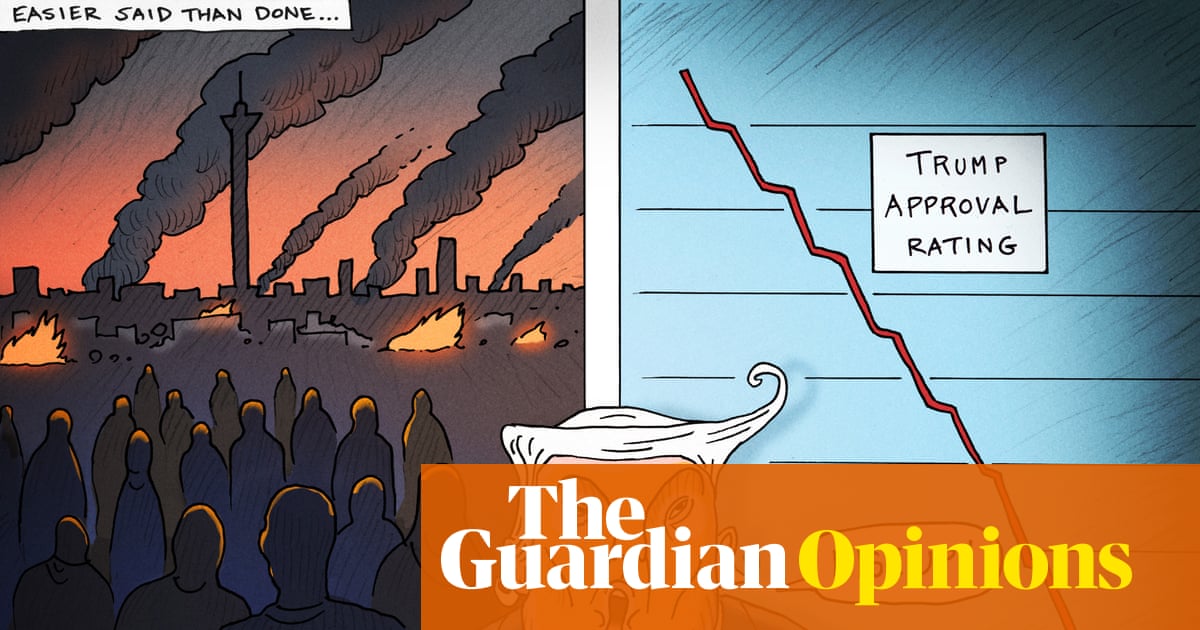At first glance, the story might seem trivial: a bureaucratic slip-up with few tangible consequences which will soon recede from the headlines. To be sure, the scandal over Rachel Reeves’s housing situation is no Watergate. Her failure to get the right licence for her south London property, which she began renting out once she moved to Downing Street – potentially putting her in breach of the law as well as the ministerial code – is a minor blip compared with the country’s multiple social crises. The prime minister said the affair was a “regrettable” but “inadvertent” error, while the Tories have called for the chancellor to resign. Yet neither party appears to have grasped its deeper political significance.
Two other senior Labour figures have also recently been pushed out over housing troubles: former deputy prime minister Angela Rayner for underpaying tax on her second home in Hove, and homelessness minister Rushanara Ali for evicting four tenants from her London property and hiking the rent. Why has each of them been foiled by housing?
The irony, of course, is that housing is an area in which Labour has made some progressive reforms. There is valid criticism over the party’s changes to planning legislation and its wrongheaded “build, baby, build” supply-side approach to solving the housing crisis, which will do little to lower prices. But there has also been some welcome funding and legislation. The party aims to spend £39bn building 300,000 affordable homes over a decade, 60% of which will be for social rent. And the Renters’ Rights Act, which recently received royal assent, will make the UK more closely aligned with European norms on rental regulation, protecting tenants from no-fault evictions and unreasonable costs. There are also rumours that the budget will involve some changes to property taxation, with the plan to put expensive houses in a higher council tax band. This is the least radical option for raising revenue from wealthy homeowners, but still a clear improvement on the present system.
Still, such policies will not be felt immediately by the wider public – especially when it comes to building – and in the meantime, housing will continue to be a site of political theatre. For obvious reasons, it is a potential liability for ministers who have homes in both London and their constituencies, or are given grace-and-favour apartments, as in the case of the prime minister, chancellor and the foreign secretary. Reeves, of course, lives at No 11 and has access to a 21-room mansion in Buckinghamshire.
Yet ministers are often more than accidental landlords. There are 85 landlords in total serving in parliament, and more than half of them in the Labour party. Reeves and her husband reportedly have another London flat in addition to their larger home, from which they make rental income. This surplus of property is not a good look at a time of public austerity – “iron-clad” constraints keep public investment at miserly levels, just enough to stop departments such as health and education from collapsing. Day-to-day administrative budgets are due to fall by 16% on average. Benefits for disabled people are set to be cut. The forthcoming budget promises even more pain, with the government doubling down on its commitment to so-called fiscal credibility.
Nor is Reeves’s error a good look in light of her previous record. While at Halifax Bank of Scotland she was investigated for her allegedly “cavalier” approach to expenses, with a complaint claiming that she and other colleagues were using them to “fund a lifestyle”, and as a frontbench politician, she received thousands of pounds in donations to spend on clothes, plus free tickets to a Sabrina Carpenter concert and the National Theatre – her late declaration of the latter was a violation of parliamentary rules.
As the party historically associated with workers, Labour continues to stake its credibility on serving “the people”, even though its current leadership is largely drawn from professional and political backgrounds rather than the labour movement. Even if the government is now taking small steps to lessen the housing crisis and make rental conditions more secure, this will not affect the legitimate impression among many of the public that Labour belongs to a political class whose interests are opposed to theirs. This chasm, in turn, makes the party prone to scandal – which can be easily exploited by forces to its right. Until people feel that their housing situation and lifestyle are improving too, any ministerial advantages will surely stick in the craw.
after newsletter promotion
-
Oliver Eagleton is managing editor of Phenomenal World

.png) 3 months ago
89
3 months ago
89

















































